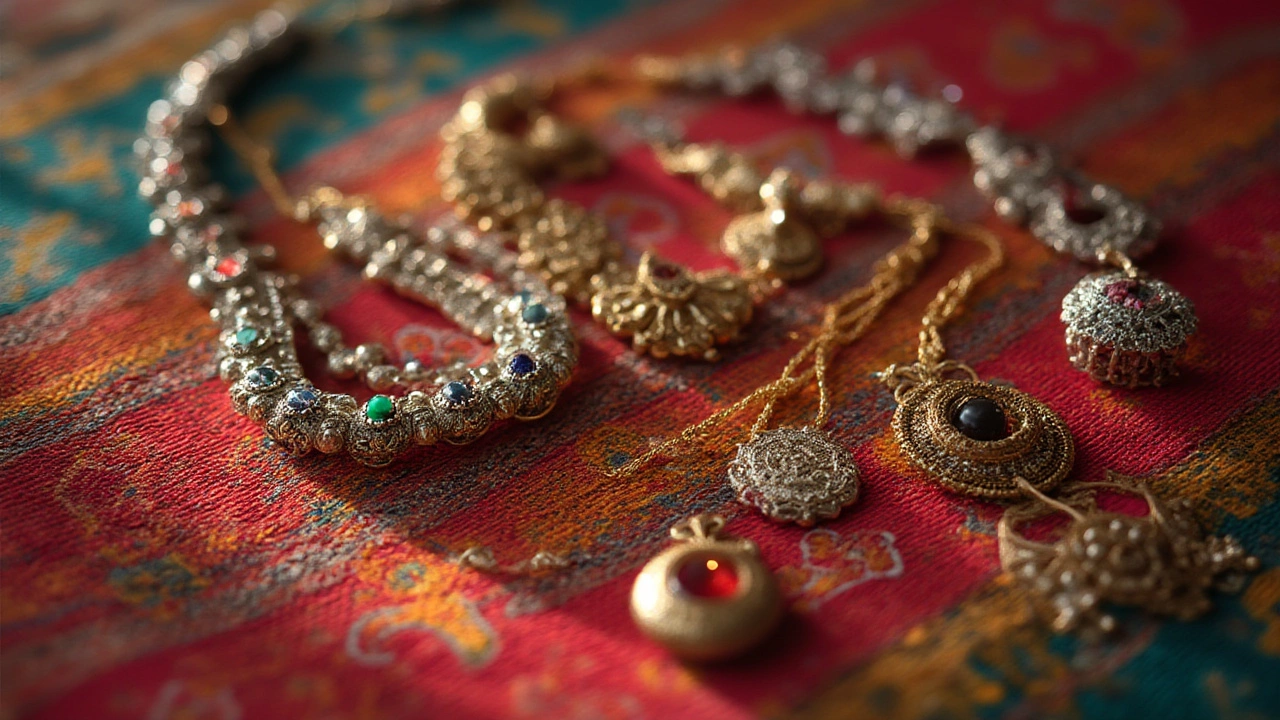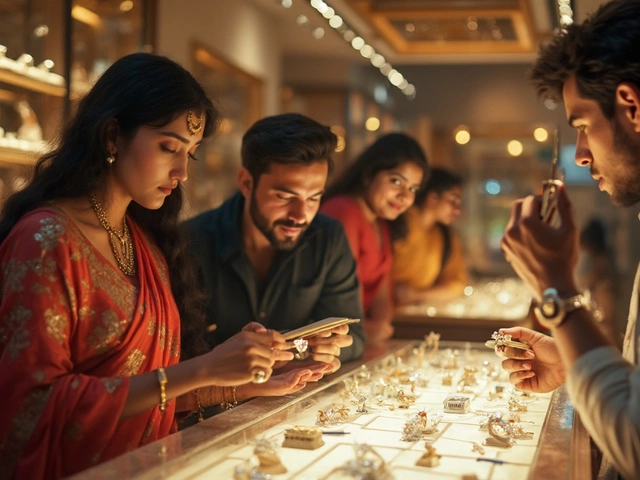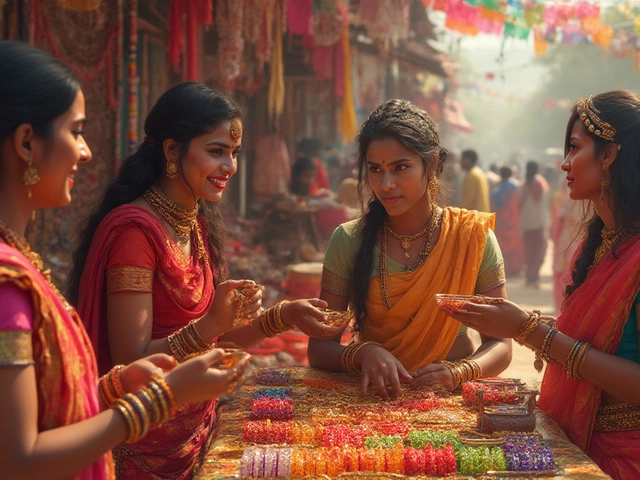Manipur jewellery: Traditional designs and modern twists
If you love Indian jewellery, you’ve probably heard of the bright, intricate pieces from Manipur. This tiny state in the northeast has a jewellery tradition that mixes tribal symbols, royal influences, and everyday wear. The result is a look that feels both ancient and fresh – perfect for festivals, weddings, or casual outings.
What makes Manipur jewellery unique?
First, the materials. Most authentic pieces use pure gold, often 22‑carat, but you’ll also see silver, brass, and a lot of glass or coral beads. The metal work is usually thin and delicate, allowing the designs to stay light on the skin.
Second, the motifs. You’ll find a lot of nature‑inspired shapes – fish, lotus, bamboo shoots – and bold tribal patterns that come from the local Naga and Meitei cultures. A popular design is the “Pikui” pendant, a curved gold shape that looks like a tiny sword and sits nicely on a simple chain. Another favorite is the “Thanga” necklace, which strings together small, flat gold plates engraved with mythic scenes.
Third, the colour palette. While gold stays the base, many pieces add coloured stones like turquoise, amber, or even lacquer‑coated beads. This splash of colour makes the jewellery stand out against traditional Manipuri dresses such as the phanek or riha.
How to choose authentic Manipur jewellery from RH Jewellers
RH Jewellers India sources most of its Manipur collection directly from local artisans. That means you get genuine craftsmanship without middle‑man mark‑ups. Here’s a quick checklist to make sure you’re getting the real deal:
- Hallmark check: Look for the BIS stamp on gold pieces. It guarantees the purity and the maker’s identity.
- Weight feel: Authentic gold feels solid but not overly heavy. If a necklace feels too light for its size, it might be plated.
- Design consistency: Traditional Manipur patterns have a specific symmetry. Compare the piece with photos on the RH website – any major deviation could signal a replica.
- Artisan story: RH often shares the craftsman’s name or village. A genuine piece will have that background, adding cultural value.
When you shop online, use the zoom feature to inspect details like engraving depth or bead setting. If something looks blurry, ask the support team for a clearer shot. The staff at RH are happy to explain the symbolism behind each design – a great way to learn while you shop.
Finally, think about how you’ll wear the jewellery. A simple gold “Thanga” chain works well with both traditional silk saris and modern western outfits. For a statement look, layer a few “Pikui” pendants on a thicker chain or mix them with coloured bead bracelets. The key is to let the pieces speak for themselves without over‑accessorising.
Manipur jewellery blends heritage and style, and RH Jewellers makes it easy to bring that blend into your own collection. Whether you’re after a subtle daily piece or a bold festival set, you now know what to look for and why these designs matter. Happy shopping!
Manipur Jewellery: Traditional Names, Styles, and Meanings Explained
Ever wondered what Manipur jewellery is called? Discover the unique names, cultural meanings, and styles behind Manipuri ornaments in this detailed guide.





